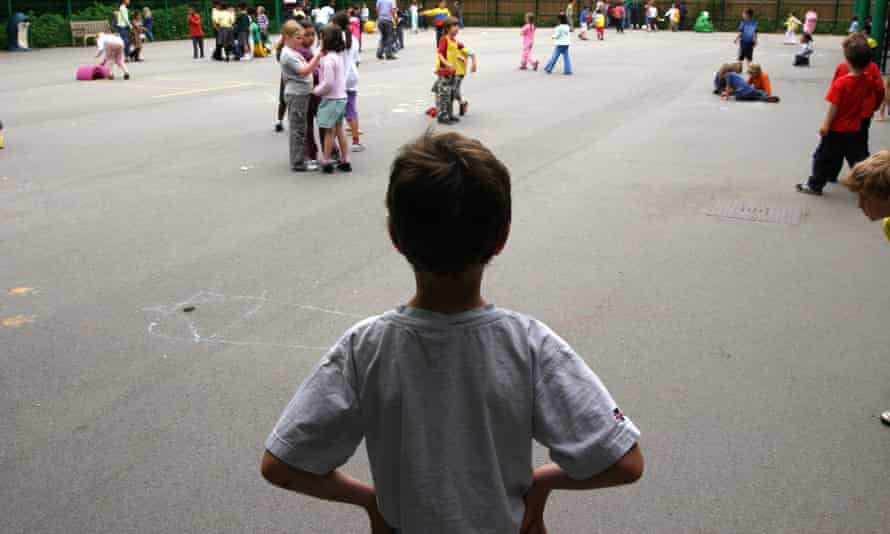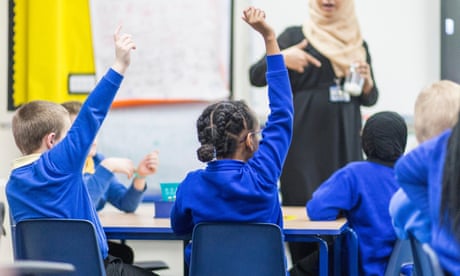Published by: RCISD
27.04.2021
News
Poll reveals grave concern among schools and councils about the scale of learning gaps that have appeared
artcle by Richard Adams Education editor Thu 25 Mar 2021 00.01 GMT

Educational inequalities and deprivation have “mushroomed” during the pandemic to such an extent that children in England need long-term aid rather than “quick” initiatives, according to a wide-reaching survey of school and council leaders.
The Local Government Association poll of eight local authorities found schools and councils gravely concerned at the scale of the learning gaps that have appeared, particularly among children with special needs and disabilities, and reports significant pressures on staff and budgets.
The report also found cases where councils and schools have been working more closely than in recent years, reversing the separation between the two following the spread of the self-governing academies that have replaced maintained schools since 2010.

The authors found that the urgency of the Covid crisis improved information sharing and cooperation to support vulnerable families, and in some cases exposed levels of deprivation and hardship that were previously hidden to schools and local authorities.
One school leader said: “I knew [our local area] was poor, but I have been shocked. I have learned how poor some people in our community really are.”
The report states: “The challenges thrown up by the pandemic, and cycles of lockdown, had not necessarily created new needs, but rather had exacerbated existing vulnerabilities and widened learning gaps.
“This is unlikely to be solved by a quick ‘catch-up’ initiative. Instead, local leaders recognised the need for a long-term offer of the sort of intensive, holistic, joined-up support for families at risk and those who are potentially vulnerable.”
The leaders of education and children’s services departments in local authorities including Gateshead, Lincolnshire and Leicester reported “extreme fatigue, the risk of burnout, and the strain on local resources, both human and financial”, including notable increases in the number of families claiming free school meals and schools reporting higher spending on IT, cleaning and staff costs.
Local leaders also revealed a “strained relationship between central and local government”, and complained of plans being developed without consultation and sudden policy shifts announced without warning.
One case highlighted by the report was “the breakdown in trust caused by the decisions and advice given around remote learning and school closures before and after the Christmas holidays”, under which primary schools in some parts of the country opened for a day before central government told them to close again.
Judith Blake, the chair of the LGA’s children and young people board, said: “The impacts of Covid-19 will be with us for years to come. They will show up in economic hardship, mental health issues, attainment gaps and more, and it will be up to councils, schools and their partners to support children and their families to navigate these challenges.
“We need to tackle head-on the inequalities exacerbated by the pandemic. This requires a long-term strategy and funding to target the most vulnerable and disadvantaged pupils.”
School leaders reported that operating under lockdown had forged new networks for all schools. One school leader said cooperation in their area had worked because “there is a spirit of teamwork. We are not divided along the lines of academies and maintained schools because we understand the dynamics of our local communities”.
Paul Whiteman, the general secretary of the National Association of Head Teachers, said: “Covid has both highlighted and exacerbated the huge problem of poverty and inequality in our country. Children are returning to school needing not just academic help but a wide range of pastoral, mental health and wellbeing support too.
“Unfortunately a simple return to ‘normal’ isn’t going to solve things, and it isn’t going to be a quick job.”
Source: https://www.theguardian.com/education/2021/mar/25/education-inequalities-exposed-by-covid-have-no-quick-fix-survey
Published by: RCISD
27.04.2021